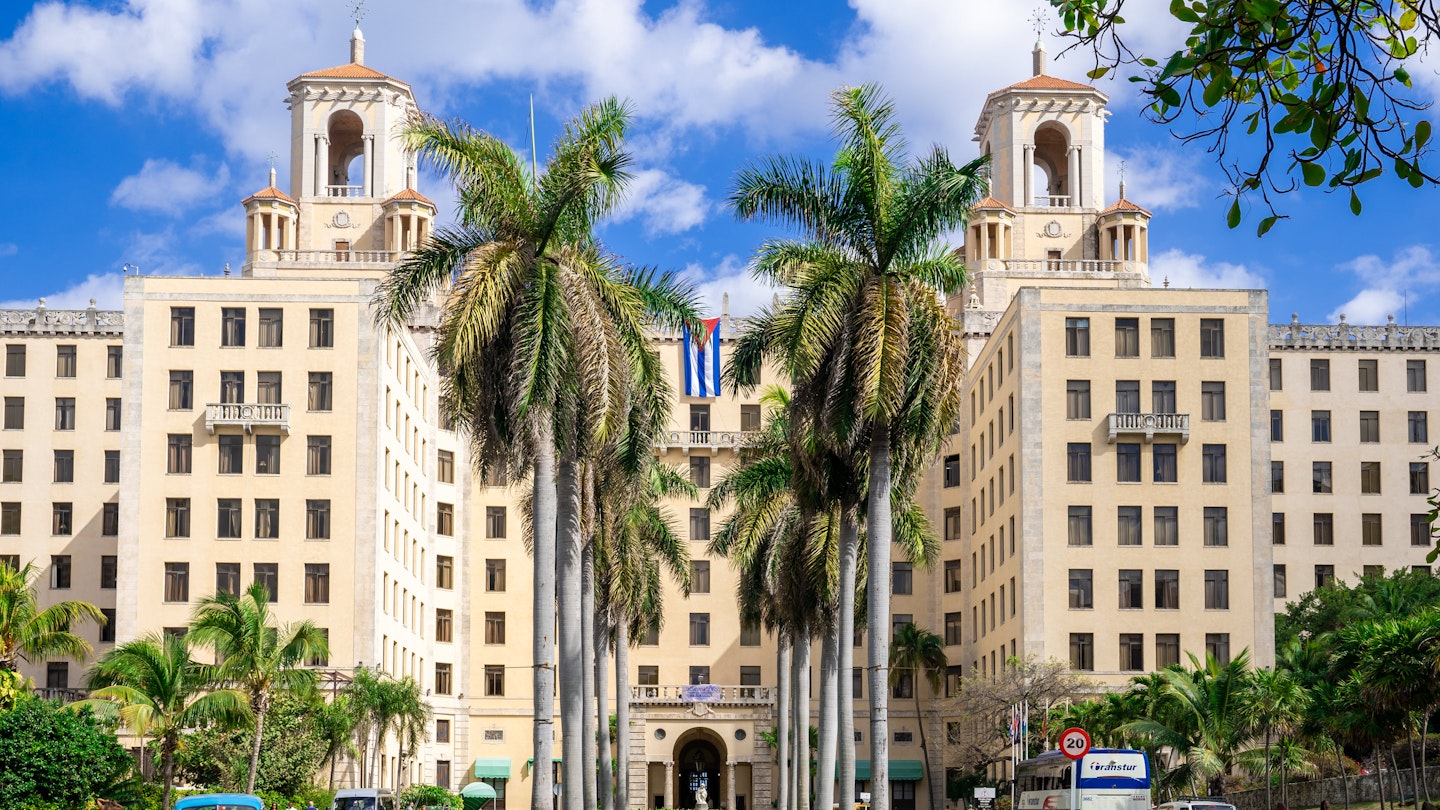Accommodation Options in Cuba: An Essential Guide
Cuba has a wide array of accommodation options, ranging from Havana’s emblematic Hotel Nacional, where notable figures such as Winston Churchill and Frank Sinatra once filled the halls with cigar smoke, to humble homestays in bucolic Las Tunas. Your biggest decision will be whether to opt for a privately-run casa particular (private homestay) or a state-owned hotel.
Casas range from simple family homes to more professional self-contained apartments. State-run places include converted colonial palaces and all-inclusive beachside resorts. Here’s a quick guide to everything you need to know about accommodation in Cuba.
Casas particulares (Private Homestays)
Casas particulares are arguably the best accommodation option for independent travelers in Cuba. Staying in these secure establishments, many of which are family-run, is a great way of meeting locals and other travelers. They offer an authentic and uncensored view of the country, enhancing your understanding and appreciation of Cuba.
Staying in one also puts money directly into the pockets of private individuals, many of whom have struggled to make a living since the pandemic. Expect relatively budget-friendly prices for standard no-frills casas, starting at about US$20 a night in the provinces, and going up to US$80 or US$100 in some of the nicer places in Havana.
Casas are also important information portals, helping first-time visitors navigate the confusing waters of Cuba’s culture and economy. Owners act as unofficial tour guides and can usually arrange various activities, from taxis to nature walks.
Houses that rent generally display a blue insignia marked ‘Arrendador Divisa‘. Thousands of casas particulares exist across Cuba, although some may have temporarily suspended services since the pandemic.
From their inception in the mid-1990s until the early 2010s, casas were heavily regulated. However, with the loosening of restrictions in 2011, you can now stay in fancier penthouses and carefully restored historical homes, although most houses are still family residences that rent out only a few rooms.
Owners pay a monthly tax per room based on location and must maintain a register of all guests, meaning you’ll be required to show your passport (not a photocopy) upon arrival.

What to Expect in a Casa Particular
Regular government inspections ensure that conditions inside casas remain clean, safe, and secure. Most proprietors offer breakfast and dinner for an additional fee (typically about US$5 and US$10, respectively). Hot showers are a necessity. Generally, rooms provide at least two beds (one often being a double), a fridge, air conditioning, a fan, and a private bathroom. Additional features might include a terrace or patio, private entrance, TV, security box, mini-bar, kitchenette, and a parking space.
In recent years, many casas have started offering Wi-Fi, although the signal can be weak and only available at certain times. Likewise, some of the more successful houses have expanded their services and operate more like small private hotels.
Hotels in Cuba
All tourist hotels and resorts are at least 51% owned by the Cuban government and are managed by four main organizations.
For budget-conscious travelers, Islazul represents the most economical choice, primarily catering to Cubans and operating in less appealing Soviet-style buildings from the 1960s. Guests should be prepared for potential noise from on-site discos.
Cubanacán provides a blend of mid-range and higher-end accommodations in urban and resort areas. Their best offerings include reasonably priced boutique hotels located in attractive city centers such as Sancti Spíritus, Remedios, Camagüey, and Santiago.
Gaviota oversees high-end resorts in all-inclusive zones along with historic hotels in Habana Vieja, while Gran Caribe manages mid-range to top-end hotels, including the renowned Hotel Nacional in Havana.
At the luxury end, foreign chains often operate all-inclusive hotels partnered with Cubanacán, Gaviota, or Gran Caribe, usually located in resort areas. Standards at these locations are comparable to those found in Mexico and the wider Caribbean, featuring brands like Meliá, Iberostar, MGM Muthu, NH Hotel Group, and Kempinski.
When to Book Hotels in Cuba
All-inclusive hotels tend to be booked in advance through package holiday companies, which may include flights, meals, and transfers. Factors influencing your choices will be price, brand reputation, amenities (such as adults-only versus family-friendly), and desired resort area. Popular hotel zones include Varadero, Cayo Santa Maria, Cayo Coco, and Holguin.
State-run hotels display prices in Cuban pesos, and if paying in person, a non-US credit card is needed, with rates charged at official Cuban bank exchange rates.
Campismos (Camps)
Campismos are where Cubans go to vacation. Although they are not traditional camping experiences, most are simple concrete cabins featuring bunk beds, foam mattresses, and cold showers. Over 80 campismos exist throughout the country, mainly in rural regions. About six are designated as ‘internacional,’ meaning they accept non-Cubans and offer slightly upgraded amenities like air conditioning and hot water.
To explore listings, you can check the official website, with offices located in every provincial city for bookings. Cabin accommodations in international campismos cost between USD$20 to USD$60 per bed per night.
New Developments in the Hotel Sector
Demand from tourists led to a hotel building surge in Cuba in the late 2010s, with developments continuing despite the challenges brought on by the pandemic.
New establishments have recently opened on Cayo Guillermo, including Cuba’s first LGBTQI+ hotel, the Muthu Rainbow. Moreover, Cayo Cruz has emerged as a new tourist island featuring three resorts to date.
Additionally, Havana has introduced several new five-star hotels in the 2020s, including historic hotels in Plaza de San Francisco de Asís and the Hotel Prado y Malecón, along with the Hotel Grand Aston on the Malecón in Vedado. Still under construction is Torre K, a 40-floor hotel tower that promises to be the tallest building in Cuba upon completion.





